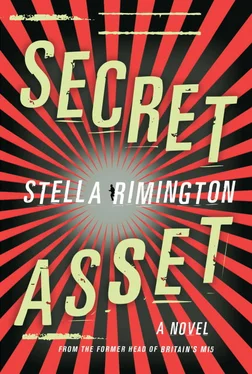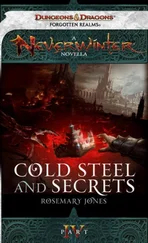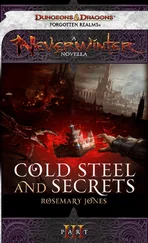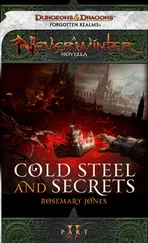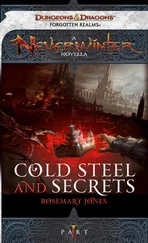Suddenly Wetherby looked at Liz. “I’ve known people to be unhappy at Oxford,” he said. “But not hate it with passion.”
“I don’t actually think it was the place, so much as what it represented to him. Somehow it’s become the Establishment incarnate.”
“Was this the influence of O’Phelan?”
Liz leant back in her chair. “To an extent perhaps. When I saw him in Belfast O’Phelan certainly didn’t sound very positive about his time there. But really I think it has to do with Tom’s own feelings. He’s carried a deep hatred for England ever since his father killed himself. I’m sure he believes his father was set up, by the intelligence services and the Government and the Establishment—whatever that’s supposed to be these days.”
“Was he?” asked Dave.
“No. Some weird things happened in Northern Ireland back then, but I don’t believe that story. I think his father was just the victim of a conman trying to make money out of a sensational story that wasn’t true. The tragedy in a sense is that his father didn’t think he was writing anti-British propaganda; he actually thought he was writing the truth.”
“But then why isn’t Tom trying to blow up Thames House? Or Vauxhall Cross?” asked Dave.
“He’d know how difficult that would be. It just wouldn’t be worth trying.”
“No, that’s not it,” said Wetherby emphatically. He pulled tensely at his tie. “If he wants to strike symbolically at the Establishment—as well as do a lot of damage—we are the wrong target.”
“So he blows up a High Table instead,” said Dave, and Liz could understand his scepticism, but it didn’t help. She was working on gut feeling now—getting more and more certain that Oxford would be Tom’s target, but terribly anxious that she didn’t really know and couldn’t be more specific than that. All those colleges, she thought, with libraries, chapels, halls and museums. It could be any of them.
Peggy re-entered the room, looking ashen-faced. “What’s wrong?” demanded Liz.
“I haven’t been able to reach the Registrar’s secretary because she’s been terribly busy with preparations for Encaenia.”
“By God!” exclaimed Wetherby. “That must be it.”
“What’s Encaenia?” asked Dave.
“It’s a ceremony at Oxford during the summer term,” Wetherby calmly explained. “It’s held in the Sheldonian. It’s a special ceremony where they give out honorary degrees.”
“To students?” asked Dave.
Wetherby was shaking his head. “No, no. To luminaries. There’s usually a foreign dignitary or two—I think last year it was President Chirac. Sometimes a Nobel Prize winner. Famous writers. That sort of thing.”
“It’s not just Encaenia,” Peggy said. “They’re installing the new Chancellor as well.”
“Lord Rackton?” asked Wetherby and Peggy nodded.
Dave’s mouth made a small moue. Rackton had been a senior Tory minister for many years, often described as the best Prime Minister the country never had.
Peggy was looking at her notes. “The Chancellor’s own ceremony is at eleven-thirty in the Sheldonian. That’s followed by Encaenia at half-past twelve. In between, the recipients of honorary degrees and University officials meet in one of the nearby colleges for Lord Crewe’s Benefaction.”
“Which is?” asked Liz.
Peggy quoted out loud: “‘Peaches, strawberries and champagne.’ They’re refreshments paid for by a legacy of Lord Crewe in the eighteenth century.”
Dave raised an eyebrow at Liz.
Peggy went on: “After he’s installed, Lord Rackton comes and joins them, and they all march off in a procession to the Sheldonian. This year the Benefaction is in Lincoln College, so they only have to go round the corner.”
“It’s quite an event,” said Wetherby. “A sort of showpiece of the University. Very colourful—eminent people, very public, very accessible.” He finished quietly. “I’m afraid it does make sense.” No one had to ask what “it” was. The anxiety of not knowing Tom’s target was swiftly being replaced by the tension of not knowing if he could be stopped.
“When is this Encaenia?” Dave asked Peggy. Please, prayed Liz, let it be weeks away. She waited with ill-disguised impatience as Peggy consulted her notes. “The ceremony is always held on the Wednesday of Ninth Week,” she declared at last.
“But which Wednesday is that?” demanded Dave, gritting his teeth. He was sitting upright now.
Peggy looked at him wide-eyed. “It’s tomorrow, of course. That’s why the secretary was so busy this afternoon.”
A long low rumbling noise filled the room, as if an aeroplane were passing overhead, and the windows trembled slightly. Standing next to Liz, Peggy visibly started.
“It’s all right,” said Dave. “It’s only thunder.”
Tom had found a small, shabby genteel hotel near the old green in Witney, a market town west of Oxford. He paid in advance for a week’s stay, booking in the name of Sherwood. He used the same name to hire the car and buy the plane ticket.
Living as Sherwood, he found it hard to fabricate a past for the man, so engaged was he with the present. In time, he would be able to fill in the blanks, enough to satisfy the most persistent of questioners, but just now he felt he lived in the perfect existential moment of his life.
He rang Bashir once, after driving carefully to the outskirts of Burford, taking back roads that had no cameras. Tom reckoned it was safe in any case—only Rashid’s phone had proved at risk, and that was only through the boy’s stupidity. What a mistake it had been to choose him—even though he had brought in Khaled Hassan, who was steady as a rock.
Now he and Bashir reviewed their plans for the hundredth time, and synchronised their watches before Tom rang off. Bashir sounded calm, but then he was of a different calibre—and commitment—from Rashid, who thankfully was destined only for a supporting role. So far, Rashid had been the only mistake. But it was too late in any case to do anything about him.
Part of Tom was relieved about that, for he had got no joy from killing his old tutor O’Phelan, or from ordering the killing of Marzipan. Not that he felt any guilt—they had been necessary murders, and if anything had caused them, it had been the overeagerness of his colleagues in MI5, particularly Liz Carlyle. Tom found it untroubling that Bashir and Khaled were eager to die. He had no interest in their motives or their cause. They would serve his purpose. That was the point of them.
And now it was Wednesday morning. D-Day, Tom told himself, as he packed, amused by how English that sounded. Later this day he would drive to Bristol where he had booked another hotel room for the night. An early morning flight to Shannon, and then on to New York courtesy of—fittingly—Aer Lingus. The search for him would by then be intense, so Tom was avoiding Heathrow where he was more likely to be recognised. As Sherwood he should be safe enough at Irish passport control, and certainly safe enough in New York. There he would decide what stage two of his long-term campaign should be. Long term—he had no intention of being anything but a permanent thorn in the side of his father’s persecutors.
On his way out, he explained to the lady at the desk that he was off to the West Country and was taking his bag in case he had to stay overnight. He did not want her to think he was leaving abruptly for good. She can be surprised later on, he thought. Just like everybody else. Including Bashir.
Liz drove down to Oxford with Wetherby very early in the morning. She had been awake most of the night, thinking of the day ahead. She’d finally fallen asleep, but it was only two days after the summer solstice and she had soon been awakened by the dawn light flooding through her bedroom window.
Читать дальше
